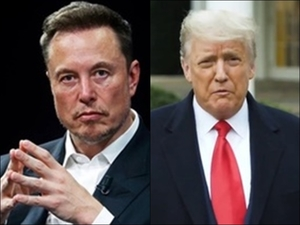New Delhi, Nov 24 (IANS) Some industry experts are skeptical whether Elon Musk’s unconventional methods and Donald Trump’s leadership will ultimately benefit AI regulation and the market at large, according to a new report.
Trump has been re-elected as President of the US with Musk appointed to lead the newly established Department of Efficiency.
Musk’s role focuses on streamlining government processes and integrating advanced technologies, a development that marks a significant shift in the regulatory landscape for artificial intelligence (AI) and other emerging technologies.
However, some industry experts remain skeptical, said GlobalData, a leading data and analytics company.
According to forecasts, the global AI market is set to reach over $1 trillion by 2030, up from $103 billion in 2023, with a compound annual growth rate (CAGR) of 39 per cent over the period.
Kamilla Kan, senior data scientist, Medical Devices team at GlobalData, said that with the increasing adoption of AI across sectors, the need for robust, forward-thinking regulations is more critical than ever.
“AI technologies are becoming integral to a range of industries, and we expect this trend to accelerate globally in the coming years. However, it remains uncertain whether Musk’s approach will truly enable the responsible growth of AI or if it may inadvertently create regulatory gaps that could hinder the technology’s safe and ethical integration,” Kan emphasised.
Musk’s efficiency-focused mandate includes developing frameworks aimed at streamlining AI compliance while fostering innovation, though there is uncertainty about how effective his approach will be in practice.
His appointment reflects the government’s intention to strengthen the US position in AI and technology, which are now viewed as critical for economic growth and national security.
Musk’s Department of Efficiency is expected to provide some regulatory consistency and clear guidelines to help businesses harness AI responsibly.
However, concerns remain about whether this approach will adequately balance public trust with the rapid demands of technological advancement, said the report.
–IANS
na/






























